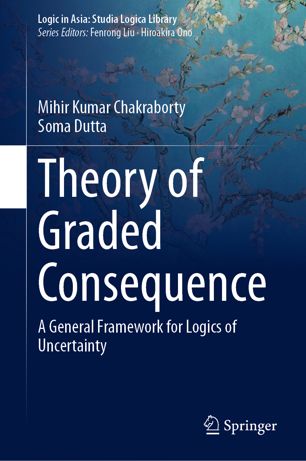

Most ebook files are in PDF format, so you can easily read them using various software such as Foxit Reader or directly on the Google Chrome browser.
Some ebook files are released by publishers in other formats such as .awz, .mobi, .epub, .fb2, etc. You may need to install specific software to read these formats on mobile/PC, such as Calibre.
Please read the tutorial at this link: https://ebookbell.com/faq
We offer FREE conversion to the popular formats you request; however, this may take some time. Therefore, right after payment, please email us, and we will try to provide the service as quickly as possible.
For some exceptional file formats or broken links (if any), please refrain from opening any disputes. Instead, email us first, and we will try to assist within a maximum of 6 hours.
EbookBell Team

0.0
0 reviewsThis book introduces the theory of graded consequence (GCT) and its mathematical formulation. It also compares the notion of graded consequence with other notions of consequence in fuzzy logics, and discusses possible applications of the theory in approximate reasoning and decision-support systems. One of the main points where this book emphasizes on is that GCT maintains the distinction between the three different levels of languages of a logic, namely object language, metalanguage and metametalanguage, and thus avoids the problem of violation of the principle of use and mention; it also shows, gathering evidences from existing fuzzy logics, that the problem of category mistake may arise as a result of not maintaining distinction between levels.